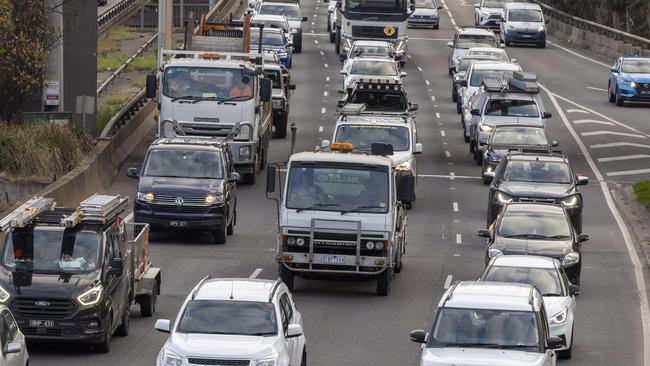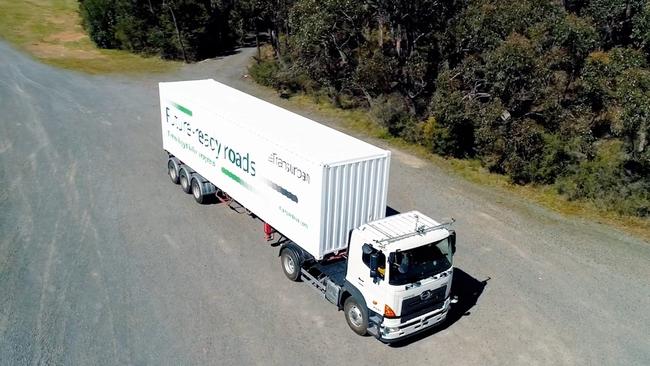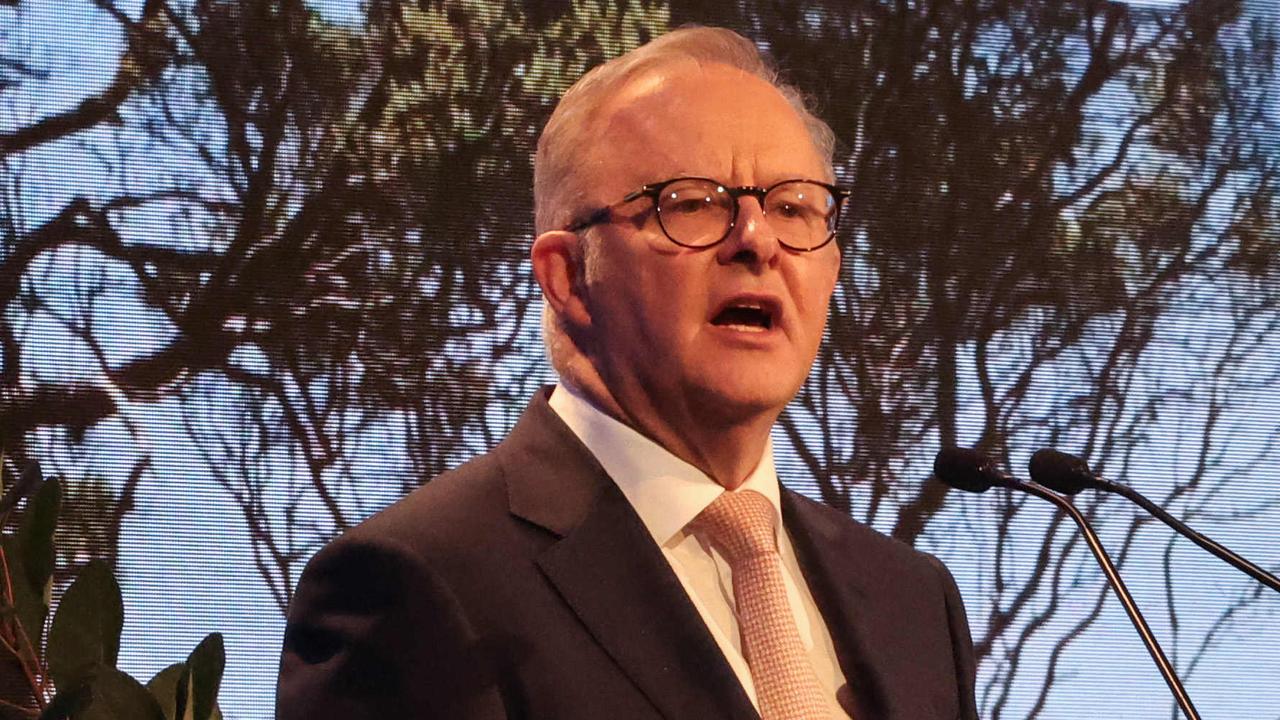Busiest, quietest days on Melbourne roads revealed: Future Victoria
The busiest and quietest days on Melbourne roads have been revealed – and one weekday is often so quiet it’s comparable with Saturday traffic.
Future Victoria
Don't miss out on the headlines from Future Victoria. Followed categories will be added to My News.
Monday has become the quietest weekday and Friday the busiest on Melbourne’s metropolitan road network as traffic patterns continue to shift post-Covid.
Some Mondays are so quiet that they are almost on a par with Saturday traffic volumes.
The fall-off in Monday traffic has been attributed, in part, to the day being a popular work-from-home option as well as a regular RDO for the building sector.
The data comes as the city undertakes a major review of its traffic-light operations to improve the flow on our roads.
Weekday traffic levels are back to 96 per cent of pre-Covid levels, compared to 54 per cent in August 2020, according to transport department data.
Friday is still busy despite it being a quieter day in the office but it’s believed shopping, family activities, visits to the CBD and people heading off for the weekend were keeping volumes up.
A Department of Transport and Planning spokesperson said more than 9.5 million trips were made on the city’s road network every weekday.
“On average throughout 2023, we’ve seen traffic levels on our road network close to those recorded in 2019, pre-pandemic.’’
And new data from Transurban, operator of the CityLink tollways, found that car owners were driving more than expected in the past year. About two in three Melburnians chose to drive to work or for study.

A Transurban study also revealed that those travelling to work or study averaged 3.6 days every week.
Weekend traffic has also recovering to pre-Covid levels faster than weekdays.
The changing patterns on Melbourne roads will reshape future policy in years ahead.
Those changes include the biggest-ever citywide review of traffic light operations.
Traffic signal engineers are analysing how light sequencing changes can provide more green-light time more efficiently to improve travel times and reduce stop-start congestion and bottlenecks.
More than 900 traffic-light sites have already been reviewed and adjusted as part of the Smarter Roads program.
Over the next four years more than 3500 sites will be scrutinised – the most extensive review since traffic lights were introduced almost 100 years ago.
A transport department spokesperson said that between February 2021 and June 2023, traffic signals had been optimised along 85 corridors, included 969 intersections and stand-alone crossings.
“Since June, we’ve optimised a further five corridors, with 16 more currently underway.”
Among the improvements, motorists travelling south on Clyde Rd, from Mansfield St to O’Shea Rd in Berwick, are now saving an average of about 4 minutes 30 seconds – a 43.6 per cent improvement during the afternoon peak, even though traffic volumes have increased.
And five minutes have been taken off the afternoon-peak journey east on the Princes Hwy from Frankston-Dandenong Rd to Belgrave-Hallam Rd in Eumemmerring.
Green light for extended ‘driverless’ truck trial

A second, extended trial of an automated truck on Melbourne’s freeways will be conducted early next year following successful testing in 2022.
The self-driving, autonomous truck travelled a total of 370km on trips along CityLink and the Monash Freeway – the first time a “driverless” vehicle was among live traffic on a public highway without driver input.
Toll road operator Transurban is now hoping for a longer journey with improved technology after signing a partnership with Plus, a Silicon Valley-based software company.
One route being considered is between Port Melbourne and Dandenong, to assess the common road freight route.
The project is using the roads’ technology, including AI, with more than 600 CCTV cameras, automatic incident detection systems and smart sensors which monitor for debris and stopped vehicles.
During the trial, the data from the technology was fed to the automated truck so it could assess conditions up to 1km ahead.
Plus’s latest driving technology, combined with the road infrastructure, is hoped to make trucking safer, more efficient, and more sustainable.
A specially trained driver was seated in the cabin of the automated truck during the trial, ready to take control in case of emergency.
Transurban’s general manager of strategic innovation Tien-Ti Mak said the company’s roads were some of the “most technologically sophisticated in the world”.
“We’re excited to combine our infrastructure and operational expertise with Plus’s innovative technology to bring the benefits of automated freight one step closer.’’
Santa Clara-based Plus is running a driver-assist project with truck manufacturer Iveco on public roads in Germany.
Melbourne’s major arterials are thought to have enough freight demand and technology to attract early adoption of automated fleets.
Victorian Chamber of Commerce and Industry chief executive Paul Guerra said the Melbourne trials reflected a culture of innovation that would attract talent, investment and businesses to the state.
“Fostering an innovation ecosystem and supporting start-ups is a strategic pillar for meaningful employment and economic prosperity, as we look to ‘future-proof’ the workforce of Victoria,’’ he said.



